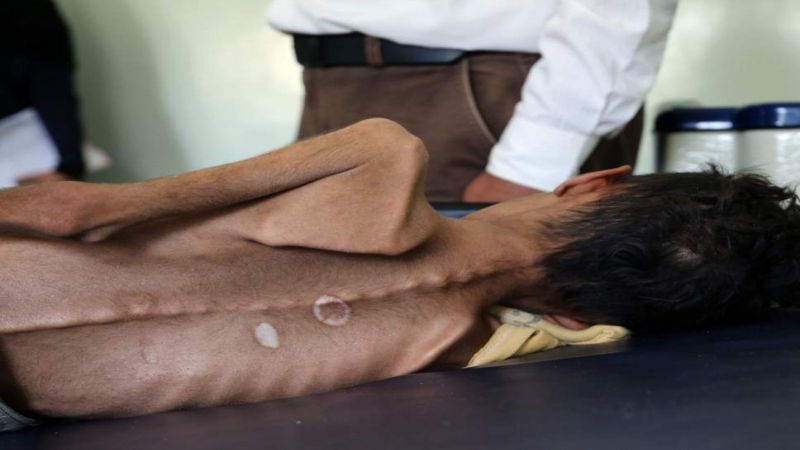
Local Editor
A former cabinet minister has said Britain is “complicit” in creating a famine in war-torn Yemen because of its support for the Saudi-led coalition, amid growing calls for the UK to halt its sales of arms to the group.
Andrew Mitchell, who was international development secretary in David Cameron’s government, has urged foreign secretary Jeremy Hunt to reassess the government’s stance on the issue.
It came as opposition MPs have also criticised the government for maintaining arms sales to the Saudi-led coalition bombing Yemen.
Mr Mitchell said: “Has our new Foreign Secretary had a chance to review the position of the British Government at the United Nations in respect of the Yemen? Will he move from a position of supporting the Saudi coalition, where Britain is complicit in creating a famine, to one of constructive neutrality to secure a ceasefire and meaningful constitutional negotiations, as the UN special representative Martin Griffiths is consistently urging and trying to secure?”
In response, Middle East minister Alistair Burt, said the UK would bring forward a resolution at the UN “as soon as the right opportunity arises”.
Theresa May’s government has previously argued, with high court backing, the supply of weapons to Saudi Arabia does not breach UK arms export licence laws as it claims there is no clear risk of a serious breach of humanitarian law by the Saudi coalition.
The value of sales to Saudi Arabia approved by Whitehall in 2017 totaled £1.13bn – over 70 per cent of all weapons exports.
But MPs heard that civilians were dying and aid supplies bombed by the Saudi coalition.
At an International Development Committee meeting on the situation in Yemen, Jan Egeland, secretary-general of the Norwegian Refugee Council, warned Mr Burt: “Millions will end up in horrific famine – the worst famine for a generation, unless there is enormous change, and we would look to UK action in a number of areas.”
“On the Saudi side there are three countries that have influence – not 190 countries, the members of the UN. It’s the US, the UK and France… You need to take initiatives.”
One of the key actions must be for the UK to stop selling the Saudi coalition arms, he said.
“What must change is the UK, US and France saying, ‘we are your main arms salesman, we are your main intelligence and strategic partners, we demand a ceasefire. Stop the air raids, stop the campaign and stop the offensive’," he said.
Source: The Independent, Edited by Website Team